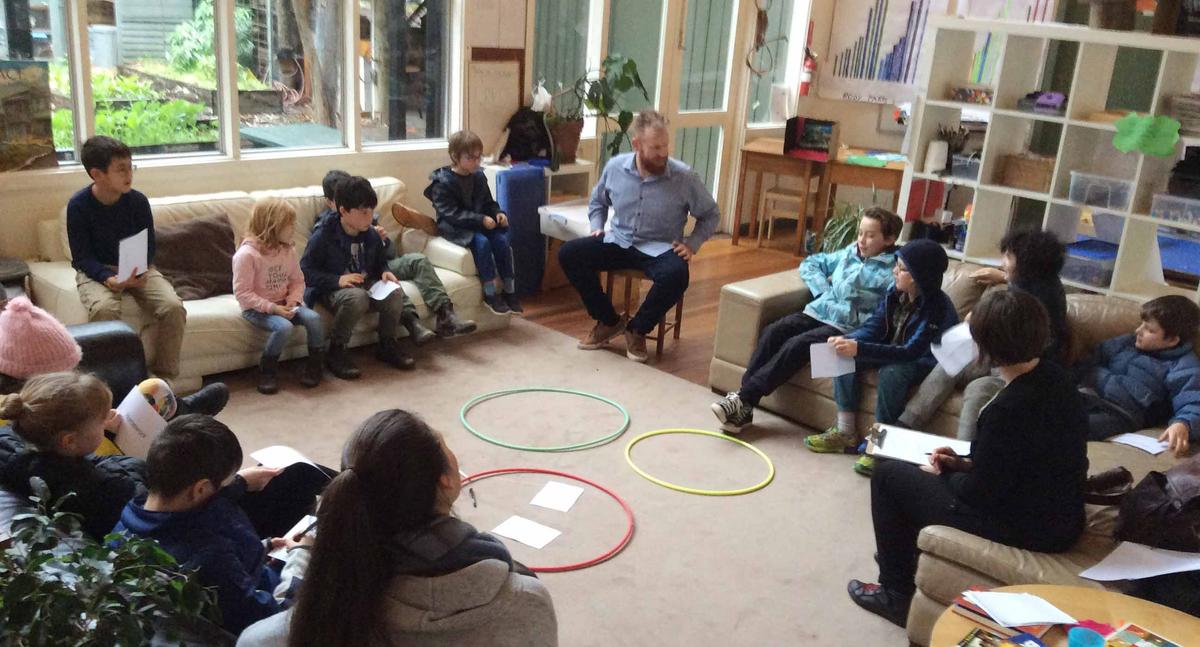RECENTLY PUBLISHED

Arlington’s Primary Philosophy Carnival
By Anthony Cavagna
Acting Head of Campus
Following from and connecting to Preshil’s fantastic Philosophy Conference, on Sunday 31 July, at the State Library with the theme of “The Art of Happiness in the Age of Consumption”, we staged our first Primary School foray into our own related question, “Can things make you happy?” Our first reactions to this question were a resounding, “Yes!”, but as we delved deeper and engaged with connected concepts and ideas, we found that this question was indeed controversial and very contestable!
The 3s, 4s and 5s (Kindergarten to Prep) entered the shared imaginary space of “The Lorax” by Dr Seuss, to explore the philosophical questions posed around “stuff” and “happiness”. The older children worked in multi-aged groupings in a variety of workshops to philosophically explore the concepts of “happiness” and “materialism”, in their own ways and with their own words.
The range of stimuli materials was carefully chosen to spark discussion and thinking. A representation of a dystopic future was examined from the movie “Wall-E”, along with a concept game helping to define “happiness”. These were just two of the six activities that helped to challenge our initial reactions and first thoughts in response to our “big question”.
By the time we arrived at our final workshop, we were feeling a little “brain-tired” having discussed the importance of: having freedom to choose and how this freedom is connected to happiness; things can make us feel happy and the value we place on special things is part of being human; that different things can make people happy – and that’s okay; and that doing things for other people can make us feel happy.
These were just some of the moments in our collaborative discussions that emerged as the children shared their thinking and tested their ideas, and questions such as “How do we decide what makes us happy?” and “How can we have a good future?” have provided forage for further inquiry and exploration both during future Philosophy lessons and within our classroom curriculum.
I hope the experience has spilt over to some robust and thoughtful discussions at home. Following the day, it was noted by our staff how important such opportunities are in helping to shape our students into thoughtful and considerate members of our community, who have the confidence to question their own, their peers and “common sense” ideas in respectful and constructive ways. These have always been intrinsically part of our educative aims at Preshil and it was wonderful to see and hear these in the shared discussion throughout the carnival.
You might like to read this article about philosophy for children on theconversation.com “Teaching philosophy for just one hour a week can improve children’s progress in writing, maths and reading”.



